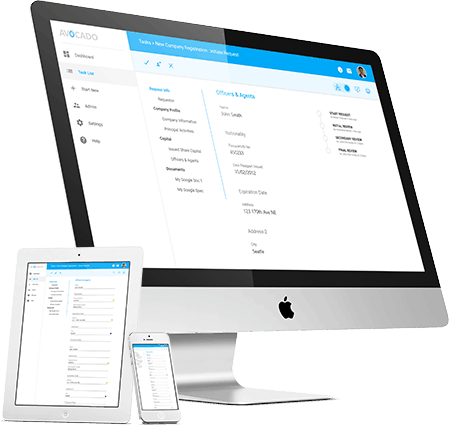Singapore’s law is well-known globally for its fair, efficient, and innovative approach. The Singapore Government is constantly improving and adjusting its regulatory regime to the vital needs of the business. These pro-business adjustments continue to enhance Singapore’s attractiveness as a startup location. You are welcome to learn more why Singapore is one of the best places globally for starting up and running a company.
Below is a quick summary of regulatory updates introduced by the Singapore Government in November 2021.
Amendments to the Singapore Copyright Act
The amended Copyright Act that passed in the Parliament in September 2021 came into effect on November 21, 2021. The new amendments will enhance the protection of content creators’ copyrights in view of recent technological developments that have affected how content is created, distributed, accessed, and used.
The following key changes were introduced:
- Creators will be the default owners of commissioned works such as photographs, portraits, engravings, sound recordings, and films. However, this default ownership may be changed in a written contract signed between the parties.
- Any creators’ and performers’ artistic works used by anyone in public (including online) must be identified in a clear and reasonable manner (even if they do not own the copyright to the work), unless agreed otherwise. This obligation does not apply if the creator’s or performer’s identity is not known.
- New exceptions to copyright owners’ rights, known as “permitted uses,” to ensure works are reasonably available for use by the public. In other words, certain use cases of copyright works without the author’s permission will be allowed (i.e. use of online materials for educational purposes; use of copyright works for data analysis).
- A copyright owner can sue anyone who makes commercially available devices or services that allow the use of audio-visual copyright-infringing content from unauthorized sources.
- Copyright owners of sound recordings can charge license fees for the broadcast or public performance of commercially released sound recordings. In addition to a license for the public performance of the underlying music, businesses that play recorded music in restaurants, shops, or hotels will need to obtain a license for the public performance of the sound recordings.
- The “fair dealing” exception was changed to a “fair use” exception, which means that it is no longer mandatory for the courts to examine, in each case, whether there is a possibility of obtaining the copyrighted work in a reasonable time for a reasonable cost.
To review the full text of the amended Copyright Act, refer to this government website.
MAS enhances the FinTech Regulatory Sandbox to boost innovation
On November 9, 2021, MAS introduced enhancements to its FinTech Regulatory Sandbox framework with Sandbox Plus to further stimulate financial innovation and FinTech adoption. An updated program takes effect on January 1, 2022.
The program was initially launched in 2016 to encourage technological innovation in the financial sector and was further enhanced in 2019 with Sandbox Express. Under this program, MAS allows eligible companies to experiment with their FinTech products and services in a testing environment. Basically, MAS will provide regulatory support and relax some of its legal requirements, which the applicant will otherwise be subjected to, for a limited period.
Sandbox Plus provides the following upgrades to the program:
- Expand eligibility criteria to support early adopters, providing a more favorable environment for new technology innovations. Currently, the program is available only for first movers that introduce a unique product not similar to anything earlier observed in Singapore.
- First movers will be able to simultaneously submit an application to enter the Regulatory Sandbox and receive a financial grant of up to S$500,000.
- Eligible applicants will be enrolled in the platform for deal-making opportunities — Deal Fridays. Through this platform, startups will be able to access investors’ networks, mentorship opportunities, and funding.
ACRA tightens penalties for late filing of annual lodgements
On November 25, 2021, ACRA announced a resumption of the 2-tier penalty framework first introduced in December 2020. The program was supposed to take effect in April 2021 but was deferred to provide more time for transition.
Under this framework, higher penalties will be imposed on Singapore-incorporated companies, Variable Capital Companies (VCCs), and Limited Liability Partnerships (LLPs) for untimely filing of Annual Returns. See the table below:

The revised penalties will also apply for ad hoc filings of VCCs (e.g. change in company’s information or personal particulars of the officers or business owners). For all ad hoc filings by companies and LLPs, the existing penalty framework will remain in place. See the table below:

Note that Singapore-registered companies, as well as VCCs, are required to file Annual Returns within 5 or 7 months after the financial year-end.
The new penalties will take effect from January 14, 2022. So, make sure you don’t miss the filing deadline to avoid higher penalties. If you need an experienced and dedicated corporate service provider to help with your company’s compliance, our corporate services team will be glad to assist you.
About CorporateServices.com
Headquartered in Singapore, CorporateServices.com, empowers global entrepreneurs with information and tools necessary to discover Singapore as a destination for launching or relocating their startup venture and offers a complete range of company incorporation, immigration, accounting, tax filing, and compliance services in Singapore. The company combines a cutting-edge online platform with an experienced team of industry veterans to offer high-quality and affordable services to its customers. Contact Us if you need assistance with setting up a new Singapore company or if you would like to transfer the administration of your existing company to us.
Share this Post

